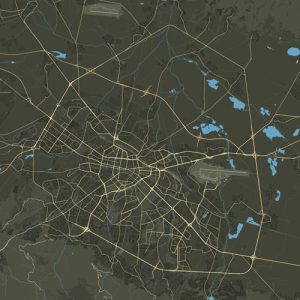Okolchitsa Peak is about 20 kilometers from Vratsa. East of it is the hut of the same name, which can accommodate more than 80 tourists and is a good starting point for visiting the historical area.
As we all know, on May 17, 1876, an insurgent group led by Hristo Botev captured the Austrian ship “Radetsky” and landed on the Bulgarian coast near Kozloduy. After three days of fierce battles with their many times superior opponent, the rebels took a position on the Kamarata and Kupena peaks and in the second battle, the numerous army of Turks and Circassians, reinforced with two mountain cannons, failed to defeat the handful of brave men.
Hristo Botev and some of his comrades stopped on the south-eastern slope of Mount Kamarata above the slope of Iolkovitsa. He stood up to see where the other Chetniks were and suddenly fell, pierced by an enemy bullet.
His broken companions took the voivode’s insignia and covered his body with branches so that the Turks would not mess with him. History has preserved the words of the only surviving eyewitness to the voivode’s death, Nikola Obretenov: “We kissed Botev on the forehead, which was clean and in the dark we retreated, leaving his corpse next to the very stone where he was killed…” Today, the voivode’s forehead marks a small rock with the inscription: “To the great Botev. Your prophecy has been fulfilled – you are alive!” In 1901 a commission, which included nine of Botev’s companions, specified the positions of the squad and proposed “in a place visible, personal and close to the last battle” to erect a monument to perpetuate this feat.
The idea became a reality only in 1937-1938, when the 35-meter obelisk was built, a dominant accent against the background of the wonderful panoramas that the mountains and fields of Vratsa generously offer.
In 1947, the militia cross on the top was replaced by a pentagram, but in 1991 the monument regained its authentic appearance.
The tradition, established by twelve tourists as early as 1947, of organizing a national march “In the footsteps of the Boteva Cheta” from Kozloduy to Okolchitsa is still alive today. Every year on June 2 – the date of his death – thousands of people from the whole country to bow before the heroism of the revolutionary poet, his Chetniks and all those who died in the struggle for liberation from Turkish slavery. Botev proved with his whole life and work how true the words written by himself are: “The one who falls in the fight for freedom, he does not die.” Only 28 years old and leaving behind only 20 poems, he secured immortality and the eternal gratitude of all generations of Bulgarians.

